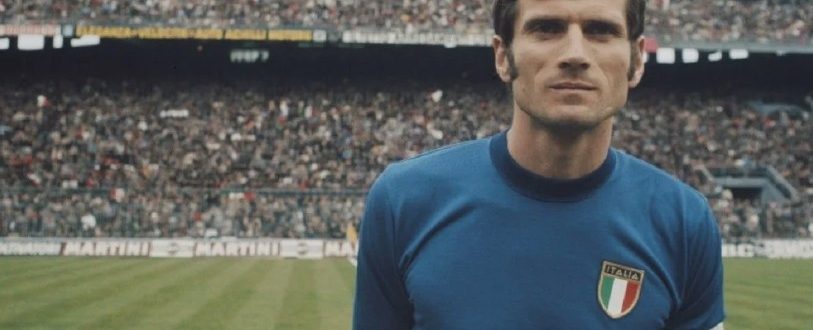Giacinto Facchetti: A Defensive Legend and Paragon of Sporting Integrity
Giacinto Facchetti is a name that resonates deeply in the world of football. Known as one of the greatest defenders of all time, Facchetti’s legacy is not just defined by his on-field performances but also by his unwavering commitment to sportsmanship and integrity. His career, which spanned nearly two decades, is a testament to what it means to be a true athlete both in skill and character.
Early Life and the Rise of a Legend
Giacinto Facchetti was born on July 18, 1942, in Treviglio, Italy, a small town in the Lombardy region. From an early age, Facchetti displayed an innate talent for sports, excelling not only in football but also in athletics. His speed and agility, developed through track and field, would later become defining features of his playing style.
Facchetti began his football journey at a local club, CS Trevigliese, where he initially played as a forward. However, it was his move to Internazionale (Inter Milan) in 1960 under the guidance of the legendary coach Helenio Herrera that transformed his career. Herrera saw potential in the young Facchetti to revolutionize the role of the full-back. Under Herrera’s tutelage, Facchetti transitioned from a forward to a left-back, where he would make his mark on the footballing world.
The Birth of the Attacking Full-Back
Facchetti is often credited with redefining the role of the full-back in football. Before him, defenders were primarily seen as players whose sole responsibility was to prevent goals. Facchetti, however, was different. With his remarkable pace, technical skill, and an eye for goal, he became one of the first full-backs to regularly join the attack.
In his new role, Facchetti was instrumental in Inter Milan’s “Grande Inter” era, where the club dominated both Italian and European football. He played a crucial role in Inter’s back-to-back European Cup victories in 1964 and 1965 and their Serie A triumphs. Facchetti’s ability to overlap and contribute to the attack while maintaining his defensive duties made him a unique and invaluable asset to the team.
During his time with Inter, Facchetti scored 75 goals in 634 appearances, an extraordinary feat for a defender. His performance earned him numerous accolades, including being named to the Ballon d’Or shortlist several times, a rarity for defenders at the time.
A Captain with a Golden Heart
Facchetti’s contributions to football went beyond his skill on the pitch. He was known for his leadership qualities and his unwavering commitment to fair play. In 1970, he was appointed captain of Inter Milan, a role he held until his retirement in 1978. As captain, Facchetti led by example, inspiring his teammates with his professionalism and his dedication to the game.
One of the most remarkable aspects of Facchetti’s career was his disciplinary record. Despite playing in a position that often required physicality and tough challenges, Facchetti was only sent off once in his entire career. This red card, which came in a match against Hellas Verona in 1975, was highly controversial and widely regarded as an unjust decision.
Facchetti’s commitment to sportsmanship was recognized globally. He was often referred to as the “gentleman of football,” a player who embodied the true spirit of the sport. His respect for opponents, referees, and the game itself made him a beloved figure not only among Inter fans but across the footballing community.
International Success and World Cup Glory
Facchetti’s talents were not confined to club football. He was also a key figure in the Italian national team, earning 94 caps and serving as captain for many years. One of the highlights of his international career was leading Italy to victory in the 1968 European Championship, where they defeated Yugoslavia in the final.
In 1970, Facchetti captained Italy in the FIFA World Cup held in Mexico. The tournament is remembered for Italy’s dramatic 4-3 victory over West Germany in the semi-final, often referred to as the “Game of the Century.” Although Italy lost to Brazil in the final, Facchetti’s performances throughout the tournament were lauded, and he further cemented his status as one of the world’s best defenders.
Life After Football
After retiring from playing, Facchetti continued to serve football in various capacities. He took on roles within Inter Milan, including that of the club’s president from 2004 until his untimely death in 2006. Under his leadership, Inter Milan experienced a resurgence, laying the groundwork for the club’s successes in the years that followed.
Facchetti’s legacy is not only preserved through his contributions to Inter Milan and the Italian national team but also through the many tributes and honors bestowed upon him. In 2006, FIFA posthumously awarded him the FIFA Fair Play Award, recognizing his outstanding sportsmanship and dedication to the beautiful game.
Legacy and Influence
Giacinto Facchetti’s influence on football extends far beyond his era. Modern full-backs, such as Roberto Carlos, Cafu, and Dani Alves, owe much to the path that Facchetti paved. His style of play, combining defensive solidity with attacking flair, has become the standard for full-backs in contemporary football.
Moreover, Facchetti’s life and career serve as a model of how success in sport can be achieved without compromising on integrity or respect for others. His story is a reminder that true greatness in football is not only about trophies and accolades but also about the character and principles one brings to the game.

